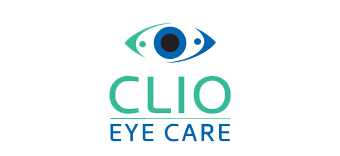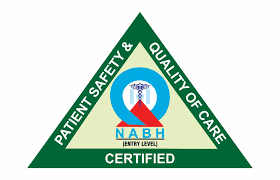Cataract Services
All you need to know about Cataract
Our Services
Quick Consultation
Testimonials
Had a very good experience from the first consultation to the follow-up visits for my LASIK surgery. Dr. Aditi provides good information and details things really well. The staff is helpful and ensures timely reminders wherever needed. Best wishes to keep providing quality care services to their patients.
Types of LASIK Surgery

Clio Eye Services
A cataract is a clouding of the natural lens inside your eye. This lens, located behind the iris, works just like the lens of a camera, focusing light images on the retina, which sends images to the brain. The human lens can become so clouded it keeps light and images from reaching the retina causing blurring of vision. Cataracts are the leading cause of visual loss in adults 55 and older.
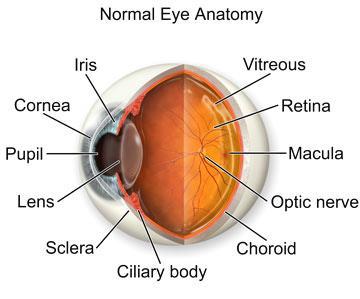
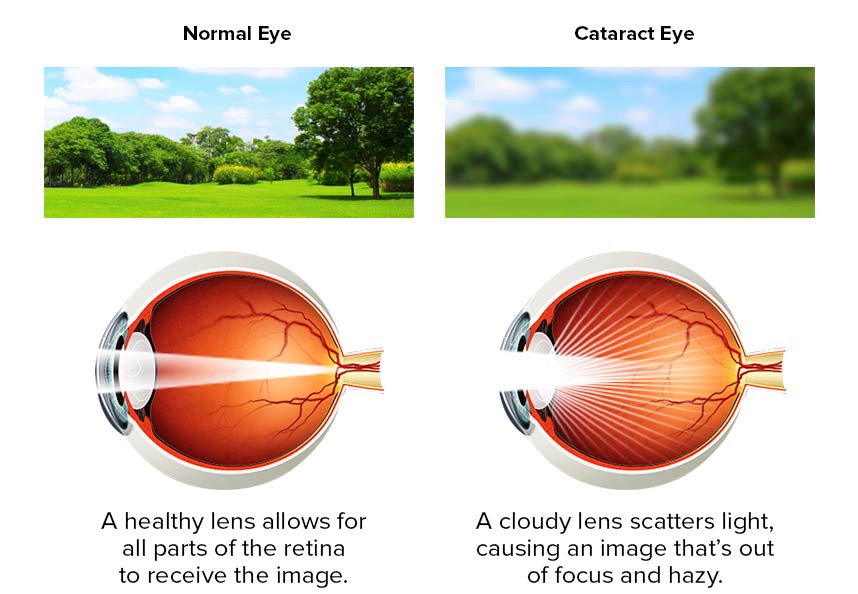
What Causes a Cataract?
Cataract development is a normal process of aging, but cataracts may also develop from eye injuries, certain systemic diseases, medications or long term exposure to sunlight. Your genes may also play a role in cataract development- this is especially true in those developing a cataract at a very young age.
What are the symptoms of cataracts?
A cataract can cause images to become blurred and bright colors to become dull. It can also make seeing at night more difficult. Vision with cataracts is often described as seeing through an old, cloudy film. Is your vision blurry or foggy? Do colours appear dull or muted? Are your glasses no longer working? Does sunlight or other light seem overly bright or glaring? Do you have decreased night vision or see halos around lights? If your answer is “yes” to any of these questions, you may have a cataract.
When is the best time to treat cataracts?
Many people believe cataracts have to be “ripe” before they can be removed. This is no longer true. Today, cataract surgery can be performed as soon as your vision interferes with the quality of your life.
There are no medications, eye drops, exercises or glasses that will cause cataracts to disappear or prevent them from forming. When you are no longer able to see well enough to do the things you like to do, cataract surgery should be considered.
In cataract surgery, the cloudy lens is removed from the eye through a surgical incision and the natural lens is replaced with an intraocular implant (IOL).
What can you expect if you decide to have Cataract Surgery?
To determine if your cataract should be removed, your ophthalmologist will perform a thorough eye examination. Before surgery, your eye will be measured to determine the proper power of the intraocular lens that will be placed in your eye. Tell your doctor about all the other medications you are taking routinely and if you suffer from any other systemic condition such as diabetes, Hypertension, Heart disease, Epilepsy, Asthma etc.
What preparation is needed On the Day of Surgery?
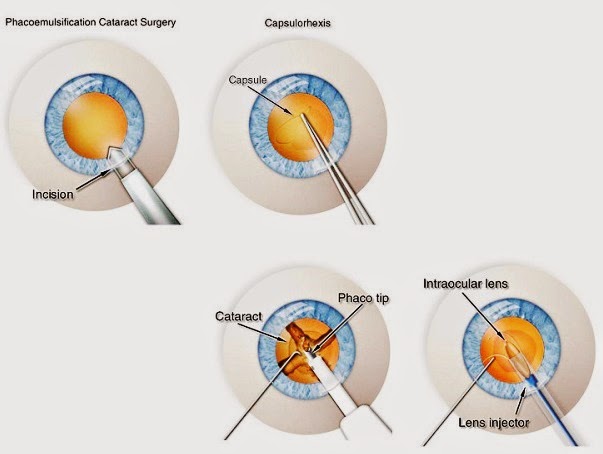
Care after Surgery
After Surgery –
Use the eye drops as prescribed
Be careful not to rub or press on your eye
Avoid strenuous activities until your ophthalmologist tells you to resume them
Wear eye glasses or an eye shield as advised by your doctor.
Is a laser used during cataract surgery?
Lasers are not used in cataract removal surgery. However now a days, certain steps of the surgery such as incisions and Capsulorrhexis may be performed using femtosecond laser.
The posterior lens Capsule(the part of the eye that holds the lens in place) sometimes becomes cloudy several months or years after the original cataract operation. If the cloudy capsule blurs your vision, your ophthalmologist may perform a small out patient procedure using laser called a YAG laser Posterior Capsulotomy, to make an opening in the cloudy lens capsule, restoring normal vision.
Will Cataract Surgery improve my vision?
The success rate of cataract surgery is excellent. Improved vision is achieved in the majority of patients if other ocular/retinal pathology is not present.
Are there any complications after cataract Surgery?
Although complications rarely occur, some possible serious complications of cataract surgery are –
Infection
Bleeding
Swelling of the retina and
Detachment of the retina etc
If you have any of the following symptoms after surgery, contact your doctor immediately…
Sudden increase in Pain
Sudden decrease in vision
Sudden redness in the operated eye
Injury to the eye
Nausea, vomiting or excessive coughing
Types of Cataract Surgery
Phacoemulsification
- Incision size 2.8 mm to 3.2 mm
- Capsulorrhexis and incisions made manually. The cataract is removed using ultrasonic energy
-
Stitchless
Precise
MICS (Microincision Cataract Surgery)
- Incision size 1.8 mm to 2.2 mm
- Capsulorrhexis and incisions made manually. The cataract is removed using ultrasonic energy.
-
Stitchless
Smaller wound
Lesser Discomfort
Highly Precise
Quick Recovery
FLACS (Robotic Laser Assisted Cataract Surgery)
- Incision Size and sites can be customized
- High Precision Femtosecond Laser used for crucial steps of surgery – Capsular opening, breaking of cataract with laser & incision making
-
Stitchless
Painless
Bladeless
Computerized Precision and Accuracy
Quick Recovery
FAQ's
Just Like every cataract is not the same, every cataract Patient’s needs are different. At CLIO Eye Care ,
we offer you a range of Intraocular Lenses from Monofocal, Enhanced Monofocal, Toric and Trifocal IOLs
to choose from.
The choice of IOL which would best suit you is based upon your Age, Corneal Shape, your Lifestyle your
visual needs and underlying comorbidities if any. After consultation, our Eye doctor will recommend to
you the implant which best suits your lifestyle and needs.
Cataract Surgery is quick and takes around 20 minutes. However, the total time spent in the hospital
including admission, pre-op preparation, surgery and discharge would be around 2 hrs – 2.5 hrs.
Cataract surgery is a very safe and highly successful procedure that can restore your vision completely. It
is one of the most common performed surgery for the eye.
Yes, the Intraocular Implant Inserted into the eye during cataract surgery, remains in the eye permanently.
With the monofocal IOLs , vision for distance becomes clear, but u will need glasses for near. With the
advanced Trifocal IOLs , you can have good vision for distance, intermediate and near thereby reducing
your dependence on glasses.
Yes, all health Insurances cover cataract surgery. The maximum cover limit may vary depending upon
the category of your insurance.
